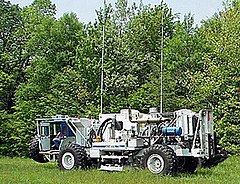Adult volunteer leaders sought for 4-H Stream Teams program
live.psu.edu/story/63390#nw69
Wednesday, January 2, 2013
UNIVERSITY PARK, Pa. — Penn State Extension is offering environmentally minded Pennsylvania adults the chance to share their interests with young people in their community.
Extension is seeking volunteers for its 4-H Stream Teams program, which guides youths in learning about local water resources and encourages them to become water stewards and involved citizens, now and in the future.
A four-part, Web-based training series for prospective 4-H Stream Teams adult volunteers will begin Jan. 29. Each live, one-hour webinar will be offered at noon and repeated at 7 p.m.:
— Jan. 29, Part 1: What is a 4-H Stream Team?
— Jan. 31, Part 2: Teaching Hands-On Water Education
— Feb. 5, Part 3: Connecting Youth to Local Water Resources
— Feb. 7, Part 4: Leading Youth in Water-Based Service Projects
This free training is open to anyone who already works with youth — such as 4-H volunteers, Scout leaders, camp directors or classroom teachers — and to any adult looking for an opportunity to share their interest in the environment with youth. 4-H programs also provide important leadership, citizenship and life skills that will benefit youth throughout their lives.
Registration for the training is required and can be completed at http://psu.ag/S5rX90. For more information, contact Jennifer Fetter at 4HWater@psu.edu or 717-921-8803, or visit http://ecosystems.psu.edu/youth/4-h-stream-teams-information.
Update -Image provided in the press release was deleted at the request of Jennifer Fetter of PSU on 10/12/2015.
Shale gas webinar focuses on published research about water impacts
live.psu.edu/story/63120#nw69
Friday, December 7, 2012

Water resource protection has been at the forefront of the environmental concerns associated with shale-energy production.
UNIVERSITY PARK, PA. — A web-based seminar focusing on published research about the effects of shale-gas development on water quality and quantity will be presented by Penn State Extension at 1 p.m. on Dec. 20.
The one-hour webinar, “Shale Energy and Water Impacts: A Review of Recently Published Research,” will be hosted by David Yoxtheimer, a hydrogeologist with Penn State’s Marcellus Center for Outreach and Research.
Water resource protection has been at the forefront of the environmental concerns associated with shale-energy production, according to Yoxtheimer.
“This webinar will review the implications from recent publications and identify areas where additional research efforts are needed,” he said.
“The webinar will help participants, including landowners, environmentalists, academia and legislators, to gain an increased awareness of current research findings and needs and how to interpret the information.”
The Dec. 20 webinar is part of a monthly series offered from 1 to 2 p.m. on Thursdays. Upcoming topics include the following:
— Jan. 17: “America’s New Industrial Revolution: A Renaissance for U.S. Chemical Manufacturing,” with Dan Borne, Louisiana Chemical Association.
— Feb. 21: “The Science behind Best-Management Practices,” with Nels Johnson, director of the Nature Conservancy.
Registration for the webinars is not necessary, and all are welcome to participate by logging in to https://meeting.psu.edu/pscems. For more information, contact Carol Loveland at 570-320-4429 or by email at cal24@psu.edu.
Previous webinars, publications and information also are available on the Penn State Extension natural-gas website (http://extension.psu.edu/naturalgas), covering a variety of topics, such as Act 13; seismic testing; air pollution from gas development; water use and quality; zoning; gas-leasing considerations for landowners; gas pipelines and right-of-way issues; legal issues surrounding gas development; and the impact of Marcellus gas development on forestland.
Tree Risk Assessment for community trees webinar scheduled
www.tnonline.com/2012/nov/28/tree-risk-assessment-community-trees-webinar-scheduled
Wednesday, November 28, 2012
Tree Risk Assessment for Community Trees webinar, Tuesday, Dec. 4, 12-1 p.m. ET. Participation in the web seminar does not require any special software. To view live and previously recorded seminars all you need is a high-speed Internet connection and sound. To take part in the live seminar, visit https://meeting.psu.edu/pacommunityforestry. Login in by registering as a guest (type your name). To view previously recorded webinars, please visit: http://www.pacommunityforests.com/webinar/index.htm.
Webinar to analyze options for establishing the value of shale gas
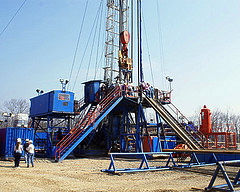 UNIVERSITY PARK, Pa. — A Web-based seminar, “Analyzing the Options for Monetizing the Shale Gas Resource,” will be presented by Penn State Extension at 1 p.m. Thursday, Nov. 15.
UNIVERSITY PARK, Pa. — A Web-based seminar, “Analyzing the Options for Monetizing the Shale Gas Resource,” will be presented by Penn State Extension at 1 p.m. Thursday, Nov. 15.
The one-hour webinar will examine the growing supply and varying demand for natural gas produced from deep shale formations in Pennsylvania and elsewhere.
Uday Turaga, founder and chief executive officer of ADI Analytics LLC — who is internationally known for his expertise in shale-gas production and the resource’s market — will provide his insight during the session.
While news reports regularly feature stories about new shale-gas basins, increased gas estimates or higher production yields, a thorough public understanding of natural-gas demand often is lacking, webinar organizers said.
Turaga will discuss research conducted by his company, looking at current and future uses of natural gas and options for utilization, conversion and monetization of this resource.
“Shale gas supply is growing rapidly and will significantly impact both the North American and the global energy industry,” said Turaga, a recognized thought leader in the energy and chemical industry, and a frequent speaker on energy issues at conferences and events globally.
“In addition to being used for power, chemicals and vehicles, shale gas could position North America as a major supplier of liquid natural gas in a world that wants more of it,” he said. “Such development would, collectively, stabilize natural gas prices and incentivize continued investments in shale gas and other unconventional resources.”
Presented by Penn State Extension’s Marcellus Education Team, the Nov. 15 webinar is part of a monthly series offered from 1 to 2 p.m. Thursdays. Upcoming topics include:
— Dec. 20, “Shale Energy and Water Impacts: A Review of Recently Published Research”
— Jan. 17, “America’s New Industrial Revolution: A Renaissance for U.S. Chemical Manufacturing”
— Feb. 21, “The Science behind Best-Management Practices”
Registration for the webinars is not necessary, and all are welcome to participate by logging in to https://meeting.psu.edu/pscems. For more information, contact Carol Loveland at 570-320-4429 or by email at cal24@psu.edu.
Previous webinars, publications and information are available on the Penn State Extension natural-gas website, covering topics such as Act 13, seismic testing, air pollution from gas development, water use and quality, zoning, gas-leasing considerations for landowners, gas pipelines and right-of-way issues, legal issues surrounding gas development and the impact of Marcellus gas development on forestland.
live.psu.edu/story/62611#nw69
Friday, November 9, 2012
Emerging water topics focus of upcoming webinar series
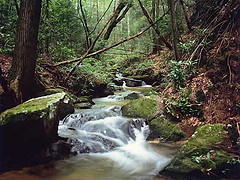
Webinar topics will include water testing, septic systems, groundwater quality, water education, West Nile virus and managing ponds and lakes
UNIVERSITY PARK, PA — The effects of Marcellus Shale natural-gas drilling and other emerging water-resources issues will be covered during monthly Web-based seminars produced by Penn State Extension starting this fall.
Topics over the next 12 months will include water testing, septic systems, groundwater quality, water education, West Nile virus and managing ponds and lakes.
The first webinar, “Tradeoffs for Municipal Officials in Leasing Watershed Lands for Marcellus Drilling,” will be held from noon to 1 p.m. on Wednesday, Oct. 31, and can be viewed at https://meeting.psu.edu/water1.
Charles Abdalla, professor of agricultural and environmental economics in Penn State’s College of Agricultural Sciences, will be the presenter in the initial webinar, discussing the effects of shale-gas development on water resources. He will concentrate on the effects of gas-drilling activity on watershed lands used for public water supplies.
“Such activity has the potential to influence the quality and adequacy of drinking water for a large number of people and businesses,” Abdalla said. “This webinar will examine issues related to leasing municipally owned watershed lands for Marcellus Shale gas exploration by reviewing the findings of a recent study of eight Pennsylvania municipalities.”
Abdalla stressed that there are many aspects that must be considered when municipal watersheds are leased for drilling.
“Those factors include officials’ motivations to lease subsurface gas rights, officials’ knowledge of expected revenues and potential risks to their water supply, how benefits and risks were considered and weighed, and how customers and the public were involved in decisions,” he said.
Pre-registration is encouraged but not required for these webinars. Recorded versions of each webinar also are posted on the website for those who cannot log on for the live version.
To register or learn more about future or recorded webinars, visit http://water.cas.psu.edu/webinars.htm.
For more information, contact Bryan Swistock at 814-863-0194 or by email at brs@psu.edu.
live.psu.edu/story/62243#nw69
Thursday, October 25, 2012
Marcellus Shale natural gas webinar series to start Sept. 13
live.psu.edu/story/61125#nw69
Friday, September 7, 2012

In the webinar a Penn State expert will present an analysis of shale-gas development, covering trends in rigs, production, pipelines and compliance.
UNIVERSITY PARK, Pa. — A new series of monthly, Web-based seminars covering issues related to Marcellus Shale natural-gas production will kick off Sept. 13.
Offered by Penn State’s College of Agricultural Sciences, the first webinar will focus on trends in shale-gas development and will include updates on the Marcellus gas play. Tom Murphy, extension educator and co-director of the Penn State Marcellus Center for Outreach and Research, will be the presenter, with extension educator Dave Messersmith moderating the Sept. 13 session.
Murphy will present an analysis of shale-gas development, covering trends in rigs, production, pipelines and compliance. This broad overview is aimed at providing a good foundation for understanding what the future may hold in the development of this energy source.
Presented by Penn State Extension’s Marcellus Education Team, all of the monthly webinars will be offered from 1 to 2 p.m. on Thursdays, with time for questions and answers. Planned topics include the following:
— Sept. 13: Overview and Analysis of Trends in Shale-Gas Development
— Oct. 18: Reading Royalty Checks
— Nov. 15: Natural Gas Utilization
— Dec. 20: What All the Water Studies Mean: Putting Them Into Perspective
— Jan. 17, 2013: Ethane Cracker Plant Impacts in a Community
— Feb. 21, 2013: Environmental Organizations’ Perspectives on Natural Gas Impacts on Forestry and Wildlife
Registration for the webinars is not necessary, and all are welcome to participate by logging in. For more information, contact Carol Loveland at 570-320-4429 or by email at cal24@psu.edu.
Previous webinars, publications and information also are available on the Penn State Extension natural-gas website,covering topics such as Act 13, seismic testing, air pollution from gas development, water use and quality, zoning, gas-leasing considerations for landowners, gas pipelines and right-of-way issues, legal issues surrounding gas development, and the impact of Marcellus gas development on forestland.
Webinars on March 15 and 22 to examine Pa.’s new gas-well impact fee
live.psu.edu/story/58352#nw69
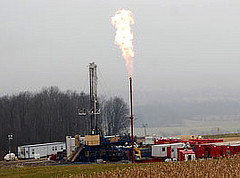
The webinars are aimed at two different audiences. The March 15 session is a broad overview for the public; the March 22 session is intended for local municipal officials.
UNIVERSITY PARK, Pa. — Two Web-based, evening seminars presented by Penn State Extension, on March 15 and 22, will provide a detailed examination of the shale-gas impact fee legislation recently passed by the General Assembly and signed into law by the governor.
The free webinars, both beginning at 7 p.m. and running 90 minutes, are aimed at two different audiences. The March 15 session, “What the Public Needs to Know about the New Shale Gas Impact Fee: Act 13,” will offer a broad overview, while the March 22 session targets local municipal officials in areas where Marcellus gas-well drilling is prevalent. The March 22 webinar will focus on the local control and planning aspects of the act.
Presenting in the March 15 webinar will be Timothy Kelsey, professor of agricultural economics in the College of Agricultural Sciences, and Stanford Lembeck, professor emeritus of agricultural economics and rural sociology and director of the Pennsylvania Municipal Planning Education Institute. They will briefly discuss background about “The Unconventional Gas Well Impact Fee Act,” including the scale of gas development so far in Pennsylvania, and the impacts on local governments and communities.
“We also will cover how Pennsylvania’s primary local taxes — the real property tax and the earned income tax — miss much of the economic growth occurring from Marcellus,” Kelsey said.
“We then will talk about the impact fee components of the act, including the fee schedule, the decision facing counties — and municipalities, if the counties don’t act — how the dollars will be allocated, and how local governments can use them.”
Kelsey noted that an introduction to the environmental setbacks and local-control components of the act will be provided in the March 15 webinar, including how the act relates to the Municipalities Planning Code.
“We will address what this means for local decision-making and influence about where Marcellus-related activity occurs within a jurisdiction,” Kelsey said. “We also will talk about the Public Utility Commission’s new roles under the act.”
In the March 22 webinar, “What Local Officials Need to Know about the New Shale Gas Impact Fee: Act 13,” presenters will be Ross Pifer, clinical professor and director of the Agricultural Law Resource and Reference Center in Penn State’s Dickinson Law School, and Jerry Walls, AICP, professional planner and retired executive director of the Lycoming County Planning Commission. They will discuss possible impacts of Act 13 on municipalities and suggest aspects of the new law to consider.
They will evaluate the local control components of the act, digging deeper into the specific details about local ordinances and what is allowed and not allowed. Their presentation will be more technical in nature, breaking down the act for planning commission members, elected officials and others who create, update and implement ordinances.
“I will offer perspectives on how to frame policy questions and draft ordinance wording for Public Utility Commission review,” Walls said. “Also, I will explain how the Natural Resource provisions of the Pennsylvania Municipalities Planning Code and the Comprehensive Plan are important as the policy framework within which to write ordinance provisions.”
Questions will be taken and answered as time allows after both webinars. The URL to take part in the webinar is https://meeting.psu.edu/naturalgaswebinars/. For more information, contact Carol Loveland at 570-433-3040 or by email at cal24@psu.edu.
Webinar examines Marcellus gas development and local water decisions
live.psu.edu/story/58188#nw69
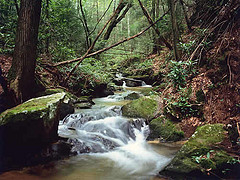
The uses and values of water in Pennsylvania are changing because of Marcellus Shale gas development.
UNIVERSITY PARK, Pa. — A Web-based seminar sponsored by Penn State Extension will examine municipalities’ roles related to water use and protection in the face of burgeoning Marcellus Shale gas development in Pennsylvania.
The 75-minute webinar will begin at 1 p.m. on March 15. Presenters are Charles Abdalla, professor of agricultural and environmental economics in Penn State’s College of Agricultural Sciences, and Peter Wulfhorst, extension educator based in Pike County, who specializes in economic and community development.
The uses and values of water are changing in Pennsylvania as a result of the rapid development of the Marcellus Shale gas industry, according to Abdalla. These changes are affecting municipal governments’ roles and activities and local outcomes and impacts.
“For example, there has been a significant increase in the demand for water needed in the hydraulic fracturing of shale gas wells,” he said. “Public water suppliers, including municipally owned systems, are meeting this demand and at the same time generating sizable revenues through water sales.
“Also, some municipalities have generated new revenues by leasing their mineral rights to watershed lands that supply water to their reservoirs and customers.”
Abdalla noted that the webinar will address three topics: water sales, leasing of municipally owned watershed lands and municipalities’ potential role in regulating land use to protect water.
“My webinar presentation will provide an overview of what we know — and don’t know — about these municipal activities, and existing and potential future issues.”
Wulfhorst will discuss the environmental safeguards that may be available under Pennsylvania law to help municipalities protect water.
“Specifically, I will cover the notification changes for both host municipality and adjacent municipality and landowners, and the requirement of a water-management plan not to adversely affect the quantity and quality of water resources,” he said.
“Also, I will review the increase in well-location restrictions for existing buildings, water wells, wetlands, public water supplies and streams, and I will discuss rules under which gas operators will be presumed to be responsible for water-supply pollution.”
The webinar is part of a monthly series of online workshops that provide education about the opportunities and challenges related to the state’s Marcellus Shale gas boom. Information about how to register for the session is available on the webinar page of Penn State Extension’s natural-gas website at http://extension.psu.edu/naturalgas/webinars.
Previous webinars, publications and information also are available on the Penn State Extension natural-gas website (http://extension.psu.edu/naturalgas), covering topics such as Marcellus gas development’s impact on transportation systems; seismic testing; air pollution from gas development; the gas boom’s effect on landfills; Marcellus gas water use and quality; zoning; gas-leasing considerations for landowners; implications for local communities; gas pipelines and right-of-way issues; legal issues surrounding gas development; and the impact of Marcellus gas development on forestland.
For more information, contact John Turack, extension educator based in Westmoreland County, at (724) 837-1402 or by email at jdt15@psu.edu.
Webinar to examine Marcellus development impacts on transportation
live.psu.edu/story/57591#nw69
Friday, February 3, 2012
UNIVERSITY PARK, Pa. — A Web-based seminar sponsored by Penn State Extension will

Thousands of trips made by water trucks, seismic trucks, drilling rigs and construction equipment to and from the Marcellus fields are having a serious impact on transportation patterns and road maintenance.
examine how Marcellus shale natural-gas development in Pennsylvania is affecting transportation patterns in the state.
The 75-minute webinar will begin at 1 p.m. on Feb. 16. Presenters include Scott Christy, deputy secretary for highway administration with PennDOT, and Mark Murawski, Lycoming County planning and community development director and longtime transportation planner.
Christy will discuss the statewide ramifications of the Marcellus play on commonwealth roads and highways. Thousands of trips made by water trucks, seismic trucks, drilling rigs and construction equipment to and from the Marcellus fields are having a serious impact on transportation patterns and road maintenance.
Murawski will provide information regarding transportation effects on the locally owned road and bridge system in Lycoming County. He also will highlight the changes to commercial and general aviation service at the Williamsport Regional Airport and to rail freight service that have resulted from Marcellus Shale gas-exploration activity.
“In addition, I want to inform webinar participants on a major initiative to develop a regional compressed-natural-gas fueling facility in the Williamsport area that will benefit River Valley Transit operations,” Murawski said. “It will spur other vehicle-fleet conversions from diesel to natural-gas fuels to fully utilize this local energy resource beneath our feet.”
The webinar is part of a monthly series of online workshops that provide education about the opportunities and challenges related to the state’s Marcellus Shale gas boom. Information about how to register for the session is available on the webinar page of Penn State Extension’s natural-gas website at http://extension.psu.edu/naturalgas/webinars.
The next webinar in the series, at 1 p.m. on March 15, will focus on municipalities’ roles related to water use and protection.
Previous webinars, publications and information also are available on the Penn State Extension natural-gas website (http://extension.psu.edu/naturalgas), covering topics such as seismic testing, air pollution from gas development; the gas boom’s effect on landfills; water use and quality; zoning; gas-leasing considerations for landowners; implications for local communities; gas pipelines and right-of-way issues; legal issues surrounding gas development; and the impact of Marcellus gas development on forestland.
For more information, contact John Turack, extension educator based in Westmoreland County, at 724-837-1402 or by email at jdt15@psu.edu.
Jan. 19 webinar to look at seismic testing with Marcellus gas play
live.psu.edu/story/57147#nw69
Thursday, January 12, 2012
UNIVERSITY PARK, Pa. — A Web-based seminar sponsored by Penn State Extension will examine seismic testing associated with Marcellus gas development in Pennsylvania.
Titled “Seismic Testing: What’s It All About?”, the 75-minute webinar will begin at 1 p.m. on Jan. 19. Presenters will be Kenneth Hall, of Kenneth Hall Consulting Services of Snow Shoe, Pa., and Dennis Langlois, of Houston, Appalachian region sales and marketing manager for CGG Veritas.
Hall is a retired financial adviser who has been involved in natural-gas leasing and investment for more than 15 years. He manages more than 30,000 acres of gas rights in northern Centre County and has negotiated gas leases on more than 40,000 acres.
Langlois has been in the seismic business for 32 years, the past 24 years with CGG Veritas Land Surveys. He started working on field crews in an entry-level position and worked his way up to his current job.
During the Jan. 19 webinar, Hall will discuss the potential problems that may be encountered with seismic testing and conditions property owners should require prior to approving the testing.
“Attaching conditions to the approval will minimize any potential conflicts,” he said, noting that he has been assisting property owners and mineral owners with their conflicts for many years.
“I have seen seismic testing from all sides: surface owners who do not own their mineral rights, leaseholders, gas companies and seismic companies. My experience with the potential conflicts of each party gives me unique insight into seismic-testing issues.”
Langlois will offer a slide presentation, giving a brief summary of events that take place in acquiring a 3-D seismic survey, from the initial contact with the landowners until his company has acquired the data and left the area.
“The slide presentation will show maps with surface abstracts and the recording grid needed to image the subsurface,” he said. “There also will be pictures showing the different operations and the equipment that will be used to acquire this data.”
Langlois hopes webinar participants will ask questions about the process because he is hoping to dispel misconceptions and clarify misinformation about seismic-testing operations.
The webinar is part of a monthly series of online workshops addressing opportunities and challenges related to the state’s Marcellus Shale gas boom. Information about how to register for the session is available on the webinar page of Penn State Extension’s natural-gas website.
< http://extension.psu.edu/naturalgas/webinars >
Future webinars will focus on transportation patterns and impacts from Marcellus development, and municipalities’ roles related to water use and protection.
Previous webinars, publications and information also are available on the Penn State Extension natural-gas website, < http://extension.psu.edu/naturalgas > covering topics such as air pollution from gas development; the gas boom’s effect on landfills; water use and quality; zoning; gas-leasing considerations for landowners; implications for local communities; gas pipelines and right-of-way issues; legal issues surrounding gas development; and the impact of Marcellus gas development on forestland.
For more information, contact John Turack, extension educator based in Westmoreland County, at 724-837-1402 or by email at jdt15@psu.edu.

